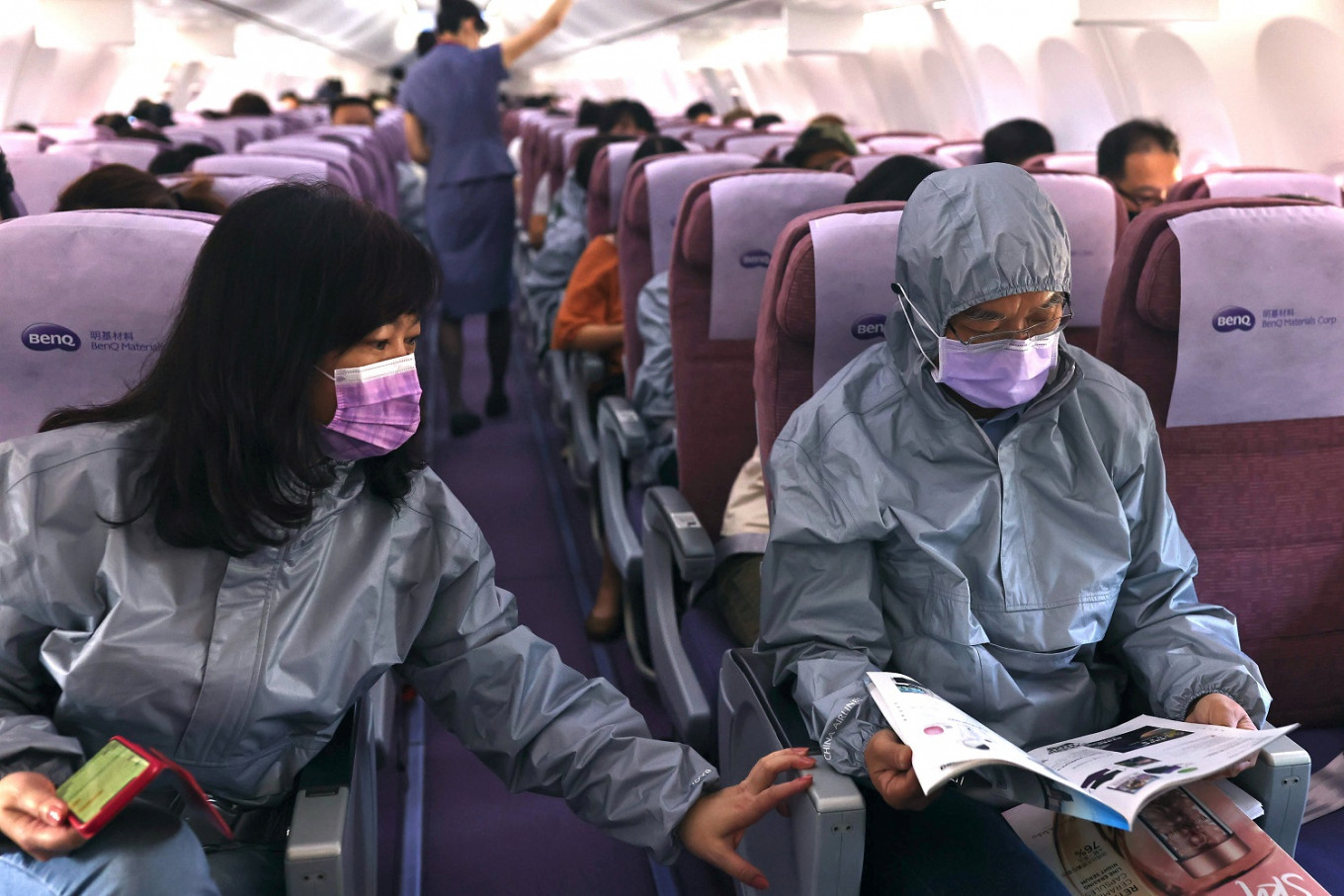Popular Reads
Top Results
Can't find what you're looking for?
View all search resultsPopular Reads
Top Results
Can't find what you're looking for?
View all search resultsThree reasons the airline industry is critical to a global recovery
Assuming the industry survives the challenging months ahead, it will play an historic role in distributing vaccines to the world’s population.
Change text size
Gift Premium Articles
to Anyone
S
hares in airlines led the rebound in global stock markets in recent weeks on the news of a significant breakthrough in the race to find a C0VID-19 vaccine. While the surge reflected a welcome “good news day” in arguably the most difficult year in the industry’s history, it was also a reminder of the critical role that the aviation sector will play in the economic recovery in the wake of the pandemic.
A vibrant and healthy aviation sector is a key driver of global economic growth. This is true for three principal reasons.
Firstly, air travel drives spending, which stimulates growth in an airline’s host and destination economies and is key to economic recovery. In a recent study of AirAsia’s economic impact, Oxford Economics found that the airline facilitated more than 3.5 million international visitor arrivals into Indonesia in 2018. Those travelers spent money with tourism service providers, such as hotels, restaurants and taxis, which in turn generated business throughout their own diverse supply chains.
This is why a successful vaccine program will be particularly important for the aviation industry as well as for the economy as a whole. At the global level, total flight numbers remain at only half the level they were in January. In Indonesia, passenger departures were down by 80 percent in September, compared to the start of the year.
Based on the assumption that a reliable vaccine becomes publicly available in 2021 and takes time for global dispersion, the International Air Transport Association (IATA) projects that global passenger activity will not return to 2019 levels until 2023.
Secondly, an active aviation network boosts competition and trade, facilitates business interactions and foreign investment, and encourages new experiences and the exchange of know-how. Many organizations have surprised themselves in the past year with their ability to keep the wheels of business turning while their staff have worked remotely.
But the ability to move across borders, meet new people, and cement relationships adds an intangible value to business that is increasingly being missed. In our study we also found that as airlines repeatedly connect people, businesses and ideas, airline operations bring about productivity gains to the economy.
Finally, the aviation sector has a critical role to play in the immediate and effective distribution of the C0VID-19 vaccine. Once a successful vaccine has been scaled up it must be distributed quickly from its concentrated production sites to hundreds of countries and regions around the globe. The high value of these shipments and the need for maintaining sensitive carriage conditions mean air cargo will have a crucial role to play in their distribution.
This will be especially true in the archipelago and island nations of South-East Asia. For such an historic challenge, the air transport network requires investment in services and capacity. In a recent International Air Cargo Association survey, 80 percent of airlines said that additional flights might be necessary to meet the demand for vaccine distribution, while over 90 percent felt additional investment in equipment might be required.
The aviation industry has been among the hardest hit by COVID-19. But the same industry that was brought to a halt by this global pandemic has the potential to take the world past it. Assuming the industry survives the challenging months ahead, it will play an historic role in distributing vaccines to the world’s population, reconnecting global economies, and breathing life back into the hundreds of millions of businesses and workers and that depend on it.
To achieve this, the industry needs the cooperation and support of governments, regulators and users – especially when it comes to quickly adopting technologies and processes which will enable mass-travel to resume in a COVID-safe manner. The challenge is great, but so too is the prize of a reconnected world.
***
James Lambert is director of Economic Consulting, Asia, and Tom Rogers is associate director, Macro Consulting, Asia – Oxford Economics, Oxford.










